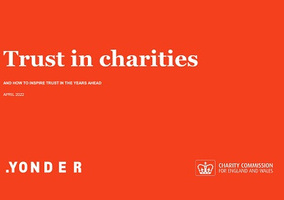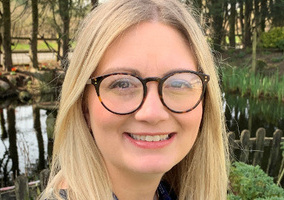More than a fifth of British adults are paying members of a charity, according to a new report by nfpResearch.
Membership and the Charity Sector shows that paid membership of charities has remained consistent over the past decade, dipping from around 24% in 2008 to 23% last year.
Charity membership schemes seem to have fared better that other organisation such as sporting clubs, special interest groups and professional associations, which have all been declining in recent years.
Types of charity membership
The report found that support or advice charities such as NCT and Scope attracted the most members, with 38% of paying charity members that responded signed up to one.
This was followed by campaign charities (32%), cultural/heritage charities (28%) and charities that offer special interest group/society/clubs (23%).
On gender, men appeared to be more likely than women to be members of a charity that maintains cultural/heritage sites such as the National Trust, at 36% and 17% respectively.
The same is true for special interest groups, with 29% of men being members of these compared to 15% of women.
When it comes to charities that campaign for causes such as Amnesty International, more women (38%) are signed up for these than men (28%).
nfpResearch also asked respondents about their motivations for being members of charity.
Some 49% of campaign charity members and 42% of cultural/heritage charity members said they were driven by a desire to “support a worthwhile cause” while 47% of special interest charity members said they want “to make a difference”.
At the same time, 42% of cultural/heritage charity members and 38% of special interest charity members admitted that they want to “gain the benefits of being a member such as free entry to sites or discounts on products”.
‘Key source of income’
nfpResearch also analysed the largest 25 charity membership schemes and found that the largest 10 membership charities all have more than 300,000 members each.
Annual membership costs range from £15 for Crohn’s and Colitis UK to around £100 for the Scout Association, which rank 25th and 8th respectively. Overall, the average annual cost for all these charities is £56.
For many, total income from membership represents a “significant proportion” of unrestricted income. The British Horse Society, for instance received 81% of its £11.8m total income from its 116,320 members in the year ending 31 December 2020.
The National Trust (53%), u3a (52%), WWF (51%), Art Fund (47%), English Heritage (46%), Scout Association (45%) and WI (43%) were among the charities that received over two fifths of their total income from membership in 2020-21.
Where there is an available breakdown of expenditure spent directly on maintaining membership schemes, the report found that these directly fulfil the charity’s purposes, “such as providing a sense of community”.
“For instance, the Royal British Legion spends nearly twice as much on providing operational and administrative support to its membership structure as its membership scheme raises. In its 2020 annual report, RBL reported £4.1m in income from membership subscriptions (3% of its total income), but £8m in operational costs on membership (5% of its total operational costs),” the report said.
Sector must maintain ‘momentum’
Tim Harrison-Byrne, managing director of nfpResearch, said: “Membership is a crucial tool for charities to boost their income and engagement. Despite the hardships being faced all around, our new report shows that the public are still invested in the success of charities.
“But it’s important that the sector maintains this momentum. A clear strategy and emphasis on inclusivity is needed to ensure that membership schemes can thrive.”
Related articles












